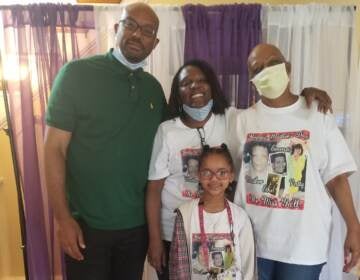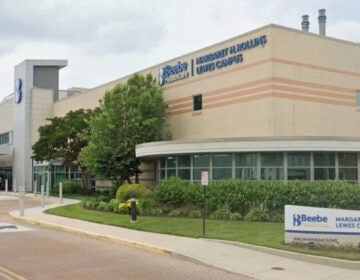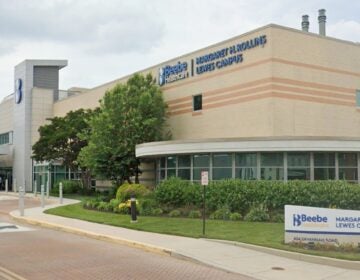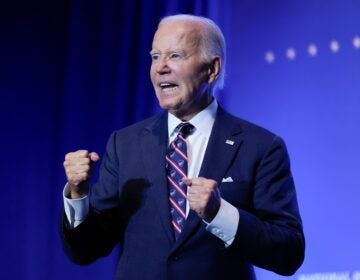Penn’s medical school partners with HBCUs to attract more Black students into medicine
The PASS program allows undergraduate students to shadow physicians, participate in student-led clinics, and create support networks with faculty.

(lenets/BigStock)
In 2019, a meeting with his academic adviser at Morehouse College would change the course of Bryson Houston’s life.
Sitting in his adviser’s office was Dr. Horace Delisser, associate dean for diversity and inclusion at the University of Pennsylvania’s Perelman School of Medicine. He was there to recruit Houston into the Penn Access Summer Scholars (PASS) program — an opportunity for students who are underrepresented in medicine to gain research experience over two summers.
“Beforehand, I didn’t know anything about Philadelphia,” Bryson said. Born in Texas, he’d never been north of his home state. “At that point, med school was on my mind. But where I was going and how I was going to get there, pay for it — that hadn’t crossed my mind yet.”
Houston enrolled in the PASS program that summer. Two years later, he was admitted into Penn’s medical school.
“It was a great experience to come into that space during that summer,” he said. “To get acclimated to a different culture. I felt like I was supposed to be there; doctors allowed me to go shadow and ask a lot of questions.”
Created in 2008, the PASS program allows undergraduate students to shadow physicians, participate in student-led clinics, and create support networks with faculty to prepare their transition to med school. The program originally served undergrads at Penn, or other schools nearby, Princeton, Haverford College, and Bryn Mawr College.
Penn expanded the program to specifically attract students of color. Recently, they signed an official agreement with five HBCUs: Morehouse College, Howard University, Oakwood University, Spelman College, and Xavier University of Louisiana.
Students who complete the program are eligible to apply to Perelman without taking the MCAT, as long as they maintain a cumulative 3.6 GPA. The Medical College Admissions Test is often viewed as a significant barrier to entry into the medical field. It requires extensive prep, costs over $300 to take the exam, and many students pay for tutoring courses to achieve higher scores.
Penn officials say the formalized agreement between the university and HBCUs is one step toward creating a medical workforce that mirrors the population it serves.
In 2021, medical schools reported a record increase in first-year Black students – a spike of 21% from the previous year. However, Black students remain underrepresented.
African Americans also made up only 5% of active physicians in 2019, according to the Association of American Medical Colleges.
And the financial price tag for obtaining a medical degree is still large.
Delisser, of the Perelman School of Medicine, said that a substantial benefit of the summer program for Black med students is its financial aid offerings.
“Students who gain linkage admission to Perelman receive a merit-based scholarship of $35,000 per year, along with any available need-based aid,” he said.
Students in the PASS-HBCU program spend two consecutive summers after their sophomore and junior years on Penn’s campus doing mentored research and participating in enrichment experiences.
Penn has tried different avenues in recruiting more Black students to its med school and had previously maintained unofficial partnerships with colleges such as Morehouse.
Creating this official partnership to expand the PASS program is an important step in bridging disparities, according to Sharon Lewis, an associate professor of clinical neurology at Penn.
“We really need to put a lot of energy and focus into supporting these students,” she said. “And making sure that we’re breaking down some of the barriers that have prohibited our underrepresented students and our black students from actually matriculating into medical school.”
Houston, who wishes to specialize in orthopedic medicine, said that increasing diversity in med school will benefit health care more broadly.
“My job is to be the best physician I can be, to give the best care I can for people that look like me and people that don’t look like me,” he said.
“That’s what this [PASS] allows. It allows us to diversify the student body. But then that student body is going to diversify health care. The diversification of health care is going to make health care better.”
—
Support for WHYY’s coverage of health equity issues comes from the Commonwealth Fund.
 WHYY is one of over 20 news organizations producing Broke in Philly, a collaborative reporting project on solutions to poverty and the city’s push towards economic justice. Follow us at @BrokeInPhilly.
WHYY is one of over 20 news organizations producing Broke in Philly, a collaborative reporting project on solutions to poverty and the city’s push towards economic justice. Follow us at @BrokeInPhilly. 
Get daily updates from WHYY News!
WHYY is your source for fact-based, in-depth journalism and information. As a nonprofit organization, we rely on financial support from readers like you. Please give today.







